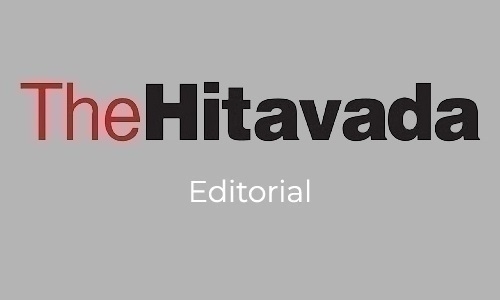As Expected
| Date :08-Jan-2025 |

THE resignation of Prime Minister Mr. Justin Trudeau of Canada has come as per expectations, though a little later than some predictions. He will continue as Prime Minister until his Labour Party comes up with another name as its leader and his successor. There is no doubt that Mr. Justin Trudeau has clad his resignation in nice words stating, in effect, that whatever he has done so far has been as per his belief of what was best for the country and democracy. No matter all the tall talk, it was becoming more and more obvious that Mr. Trudeau would not last for long in office of Prime Minister, particularly after his Finance Minister Ms. Chrystia Freeland quit a few days earlier.
That resignation had exposed the fault-lines in the ruling Labour Party and observers expected Mr. Trudeau to step down soon. With his resignation, Canada now faces twin prospects -- both, good and bad. Good, because Mr. Trudeau had outlived his political utility to the party and the country; and bad because Canadian political eco-system may not have an immediate and appropriate replacement of Mr. Trudeau. So, Canada may face an England-like situation for sometime where Prime Ministers came and went in quick succession. The biggest challenge, thus, for Canada in the next some time is to create a better and greater political stability (that Mr. Justice Trudeau could not offer in a credible manner).
There are reasons to believe that Mr. Trudeau has been sort of a run-of-the-mill politician who was willing to make every and any compromise to stay in power. Those compromises included pampering the Sikh community some of whose leaders pursued a divisive agenda and indulged in political campaigns against India from the Canadian soil. Mr. Trudeau knew very well that he was handling a hand grenade with its pin having been pulled out -- indicating that a social blast could take place any moment.
Social blast did not take place, all right. But what happened on the ground carries a great weight on the overall domestic scenario of Canada. Mr. Trudeau’s handling of the Sikh challenge was so partisan and so politically-driven that even among the Sikh community, he had begun losing fans and followers. For, from under the political umbrella he offered to the Sikh community, anti-India elements started becoming more aggressive and used their Canadian freedom in the most negative manner. And because it wanted to survive in politics, Mr. Justin Trudeau started patronising those elements without remorse, with no regard to international ethos.
Much to the contrary, he resorted to cheap, political ploys and machinations accusing India of dabbling in Canada’s internal affairs. Those were, of course, extreme political measures that did not earn any friends for Mr. Trudeau -- even within his own Labour Party. Mr. Trudeau also tried to whip up diplomatic commotion against India by trying to enlist the help of his friends in American or British or French political systems. Much of those overtures backfired as India had built a strong case against Mr. Trudeau’s intrusive politics.
Despite that, Mr. Trudeau remained obstinate in his stance and caused further damage to Canada’s international interests. In the process, he lost internal political battles and did not win a single external one in Canada’s favour. The resignation, though a little too late in the day, has brought to fore all the mistakes and misjudgements Mr. Trudeau indulged in. Canada may take quite some time to recover fully from the Trudeau effect, so to say. His successor will have to work extra-hard in nursing bruised relations with many countries including India. The development, thus, brings to fore a lesson in conduct of international situations on domestic considerations -- that narrow and thin political substratum does not lend strength to any national leader.
